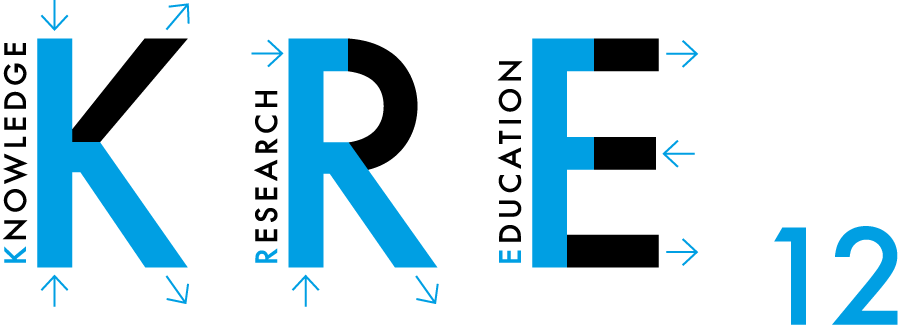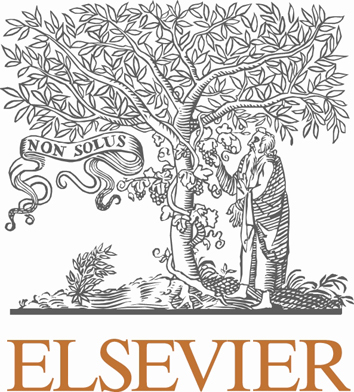International Conference KRE 12
The IPn project „Effective evaluation and financing system for research, development and innovation“, the Institute of Chemical Technology, Prague, the Czech Technical University in Prague and the National Library of Technology organize the 3rd KRE conference.
In 2012 we want to return with our 24 hours conference to the issue of research measurements in a very practical manner. The conference will be a part of the IPn project “Effective evaluation and financing system for research, development and innovation“ and a forum for reports on the progress and key activities of the project. Experts from neighbouring countries will present their systems and we will also try to find a good example a Czech university to see how we could proceed in our work in future. The closing panel should identify well grounded and just methods to support research as a necessary prerequisite of our country’s economic development and promotion of tertiary education. The conference will offer the opportunity for expert discussions outside the lecture halls as well as during the evening social programme.
Martin Svoboda, National Library of Technology Director
Program
Thursday, October 4th
Registration and inquiries 11:00 - 16:30
Cloakroom 11:00 - 18:00
Cash desk 12:00 - 13:00, 14:30 - 15:00
13:00 – 13:05
Opening of the conference
Martin Svoboda, National Library of Technology, CZE
Effective evaluation and financing system for research, development and innovation Project
Chair: Bohumil Kratochvíl, Institute of Chemical Technology, Prague, CZE
13:05 – 13:35
Stanislava Hronová, University of Economics, Prague, CZE
13:35 – 14:15
Daniel Münich, CERGE-EI, CZE
14:15 - 14:30
Discussion
14:30 - 15:00
Coffee break
15:00 - 15:40
Jiří Rákosník, Institute of Mathematic, Academy of Sciences of the Czech Republic, CZE
Institutional financing principles
15:40 - 16:20
Jitka Moravcová, Institute of Chemical Technology, Prague, CZE
How to proceed in the evaluation and financing of science – international audit recommendations16:20 - 16:35
Discussion
16:45 - 15:45
Guided tours of the National Library of Technology
19:00 - 23:30
Official Banquet at Municipal House
(Náměstí Republiky 5, Gregr Hall, the 1st floor; map)
Friday, October 5th
Registration and inquiries 8:30 - 11:15
Cloakroom 8:00 - 13:30
Cash desk 8:30 - 9:00
8:30 - 9:00
Coffee, snacks
Scientific research evaluation in European countries
Chair: Martin Svoboda, National Library of Technology, CZE
9:00 - 9:30
Wojciech Fenrich, University of Warsaw, POL
New rules of evaluation of scholarly journals and scholarlyinstitutions in Poland
9:30 - 10:00
Madis Saluveer, Estonian Research Council, EST
Research assessment and institutional financing in Estonia: 20 years of experience
10:00 - 10:30
Juraj Černák, Pavol Jozef Šafárik University in Košice, SVK
The role of scientometric criteria in the formation of budget and qualification growth at PJŠU
10:30 - 11:00
Gunnar Sivertsen, Nordic Institute for Studies in Innovation, Research and Education, NOR
11:00 - 11:30
Coffee break
11:30 - 12:30
12:30
Conclusion - Martin Svoboda, National Library of Technology, CZE
Lectures & Speakers
Juraj Černák: Importance of Selected Scientometric Criteria for Budget and Qualification Growth of Lecturers at Pavol Jozef Šafárik University in Košice, the Slovak Republic
presentation: pdf (1,1 MB), ppt (12,4) MB
mp4 (98 MB)
Abstract:
Pavol Jozef Šafárik University in Košice, according to the number of its students (approx. 8,700), belongs to the group of smaller-size public universities in Slovakia. The major part of its budget income (approx. two thirds) comes from a direct state subsidy. The subsidy amount is defined by the Methodology of the Ministry of Education, Science, Research and Sport of the Slovak Republic that is modified yearly. This Methodology uses various input data that are related to research activities of a university, the results of the last complex evaluation, the amount of financial resources obtained from home grant agencies and from abroad, as well as the publications of lecturers, research staff and students of a university, etc. The amount of publications as a scientometric criterion was for the first time used in 2005 and since then its proportional representation has risen substantially and it represents a strong motivational aspect for universities in Slovakia. The number of publications also plays important role in the qualification growth of P. J. Šafárik University lecturers and research staff. The specific requirements as to the categories and numbers of publications to be met by a candidate for the habilitation (associate professor status) and inauguration (full professor status) are defined by several legislative documents and are further specified by the documents approved by the Scientific Board of the University. The qualification growth of lecturers is also important for the University as it has its influence on the amount of the direct state subsidy. The presentation will focus on the importance of the publication activities as one of the scientific criterion relevant to the research and scientific activities of the University and the methods of publication registration by the Ministry and the University, their strengths and weaknesses will be discussed.
Juraj Černák is professor of Inorganic Chemistry at Pavol Jozef Šafárik University in Košice, the Slovak Republic. He was appointed to the post of Vice-Rector for Science and Research in 2007. Prior to that, he was Head of the Department of Inorganic Chemistry (1998-2003) and Vice-Dean of the Faculty of Sciences (2003-2007). His research activities focus on the molecular magnets based on coordination compounds with emphasis on their crystal structures and relationship crystal structure vs. magnetic properties. As the Vice-Rector, he was involved in the evaluation process within the complex accreditation of the home university and he acquired considerable experience with the use of various scientometric criteria within the academic milieu.
Wojciech Fenrich: New rules of evaluation of scholarly journals and scholarly institutions in Poland
presentation: pdf (1 MB), ppt (2,9 MB)
mp4 (109 MB)
Abstrakt
Recent amendments to laws on Polish science and higher education have resulted in changes in the system of evaluation of both research institutions and scholarly journals. The final result of the assessment will be a new categorization of academic units. As the majority of scientific institutions in Poland are publicly funded, new criteria will have significant impact on their financing. The next evaluation will be conducted in 2013 and will be supported by currently developed computer applications. The address will present the rules of evaluation of journals and research units in Poland and will iscuss the main allegations made against them.
Wojciech Fenrich - works in Centre for Open Science, a unit of Interdisciplinary Centre for Mathematical and Computational Modelling, University of Warsaw. As the main analyst of the Polish Scholarly Bibliography, he is co-responsible for the development of a bibliographic part of the Polish Current Research Information System. As a qualitative sociologist and researcher, he has been involoved in various studies in the area of science, technology and society.
Stanislava Hronová: Effective System of Evaluation and Financing of Research, Development and Innovations Project – hopes and expectations
presentation (Czech version): pdf (223 kB), ppt (252 kB)
mp4 (109 MB)
Abstract:
Since 2004 the methodology of evaluating research and development results (later: methodology of evaluating results achieved by research institutions) applied in the Czech Republic has gone through many revisions which however have not changed the principles of what was devised as a not very suitable system. The deformations resulting from such evaluation became fully apparent when the results were directly linked to the distribution of funds provided for the long term development of a given organisation. In 2011 the Council for Research, Development and Innovation decided on the basis of discussions within expert community about the fate of evaluation methodology, negative effects it had on research institutions, partial outputs (at that time) of the RDI System International Audit in the Czech Republic to adopt the Long Term Principles of Evaluating the Research Institutions Results. These principles are the backbone of IPn Methodology Project that should provide the scientific community as well as the public administration with an instrument of evaluating research institutions and with the system of research and development in the Czech Republic respecting international standards and departmental differences, based on quantitative and qualitative criteria
Stanislava Hronová is the Professor of Statistics and the Deputy Rector for Science and Development, Prague School of Economics, and a member of the Research, Development and Innovations Council. She has been active for a long time in the issues of evaluation and financing of research and development and she is an expert guarantor of the Large Scale Pilot Verification key activity in the IPn Project Effective System of Evaluation and Financing of RDI.
Jitka Moravcová: How to proceed in evaluating and financing science – International Audit recommendations
presentation (Czech version): pdf (255 kB), ppt (283 kB)
mp4 (193 MB)
Abstract:
British company Technopolis Group and their partners performed between 2010 and 2011 a deep and complex analysis of the Research, Development and Innovation System in the Czech Republic. The outputs of this analysis are exceptional documents drawn by an internationally recognized authority with extensive experience in the field of management, evaluation and financing of research and development that give us for the first time an independent view of our system. The audit results are a very good starting point for the update of strategic documents such as Research, Development and Innovation System Reform or Research, Development and Innovation National Policy that should lead to the visible improvement of the RDI system effectiveness and contribute to the improved competitiveness of the Czech Republic. All the documents are accessible to general public on the Ministry of Education, Youth and Sports web sites http://audit-vav.reformy-msmt.cz/. The paper will inform about the most important recommendations concerning RDI management, financing and evaluation on all levels.
Jitka Moravcová, Professor of organic chemistry at the Institute of Chemical Technology in Prague, graduated from the Institute of Chemical Technology in Pardubice (now Pardubice University), where she also completed her PHD course. Since 1980 she has been a member of the Faculty of Food and Biochemical Technology (Institute of Chemical Technology, Prague) with a focus on the synthesis of saccharide derivates with potential biological activity. She lectures on all levels of the university courses and supervises diploma theses and dissertations. Between 2005 and 2007 she acted as a pro-rector for science and development, from 2000 and 2006 she headed the Institute of Organic Substances Chemistry. She is a member of a number of scientific and departmental councils and an expert guarantor of the Ministry of Education, Youth and Sports IPn projects “Audit” and “Methodology”.
Daniel Münich: Evaluation Principles
presentation(Czech version): pdf (925 kB), ppt (707 kB)
mp4 (156 MB)
Abstract:
The objective of Ipn project “Effective evaluation and financing system for research, development and innovation“) is to replace from 2015 the existing Methodology of evaluating the results achieved by research institutions with a more effective system of institutional evaluation based on the international quality standards. The new evaluation in the form of informed peer-review will reflect the Ipn Audit recommendations as well as Long Term Evaluation Principles adopted by RVVI (Research, Development and Innovations Council). The new system will combine quantitative and qualitative evaluation of outputs and contributions of the creative activity of research institutions with clear and future oriented indicators in order to facilitate evaluation of their development dynamics, evaluate their outputs from the point of view of their quality, relevance, impact and effectiveness while respecting the departmental and institutional differences. It should enable periodic evaluation of the performance of Czech Research, Development and Innovation system as a whole and of its individual components in comparison with the global standards. The evaluation results should facilitate strategic management on the level of public administration as well as on the level of individual institutions and their departments. The evaluation process should be resistant to nepotism and should be supported by high quality international expert evaluators and bibliometrical criteria.
Daniel Münich is an Associate Professor at CERGE-EI, the joint academic institution of the Economic Institute (Czech Academy of Sciences) and the Centre for economic research and PHD studies (Charles University). He graduated from the Czech Technical University (Faculty of Electrical Engineering) and from the Charles University (PHD in economics). He focuses on the problems of institutional evaluation and research financing.
Jiří Rákosník: Institutional financing principles
presentation (Czech version): pdf (264 kB), ppt (237 kB)
mp4 (107 MB)
Abstract:
The system of funding research institutions from public resources in the Czech Republic has undergone a complicated development since 1990 and, particularly during the last decade, arrived at a very unsatisfactory state. The decision process about which organisations should receive institutional support for R&D, and at which level, lacks strategic information. It relies on mere mechanical recording of outputs, with the rules changing every year, and ad hoc measures must then compensate for serious flaws. One of the main goals of the Individual National Project “Effective Evaluation and Financing System for Research, Development and Innovation” is to propose mechanisms for effective public funding of research institutions based on a new evaluation system and emphasizing excellence, motivation and medium-term stability.
Jiří Rákosník has been working as a research fellow in the Department of Topology and Functional Analysis of the Institute of Mathematics AS CR in Prague. His research interests are in mathematical analysis, particularly the theory of function spaces and its applications, as well as digitization of specialised literature and digital mathematics libraries. He served as a member of the Presidium of the Academy of Sciences, was responsible for conceptual economic issues from 2001 to 2009 and gained a considerable expertise in R&D legislation and financing. He is a member of the project team in the Individual National Project “International Evaluation of Research, Development and Innovation in the Czech Republic and Implementation of Results into Strategic Documents” and a guarantor for the key activity “Funding System” in the Individual National Project “Effective Evaluation and Financing System for Research, Development and Innovation.”
Madis Saluveer: Research assessment and institutional financing in Estonia – 20 years of experience
presentation: pdf (1,2 MB), ppt (1,55 MB)
mp4 (102 MB)
Abstrakt
The Estonian R&D and higher education system have undergone profound changes over the last 20 years. The institutional reforms in 1990s, continuous evaluation of R&D activities at various levels, focus on high-quality research, and recent investments into the development of R&D infrastructure have increased the competitiveness of Estonian research and researchers internationally. The presentation will tackle the issues of types, scope and frequency of research evaluations in Estonia, use of “metrics” in research assessment as well as the impact of evaluation outcomes upon the research funding system.Dr Madis Saluveer is Head of Department of Research Funding at the Estonia Research Council. He has wide R&D related experience having worked for 17 years as a researcher and lecturer, later as a university research administrator dealing with sponsored research, EU framework programmes and strategic planning. Over the last 7 years he has been involved in research funding, research evaluation, peer review, and scientometric issues on the national level.
Gunnar Sivertsen: Experiences with a bibliometric indicator for performance-based funding of research institutions in Norway
presentation: pdf (1,9 MB), ppt (3,72 MB)
mp4 (85 MB)
Abstrakt
In 2005, Norway implemented a performance based funding model for the Higher Education Sector with a weighted indicator based on complete data (in journals, series and books) for the scientific publication output at the level of institutions. A similar indicator was implemented in Denmark and Flanders (Belgium) in 2009 and is presently being developed in Finland for implementation in 2015. Norway has recently made all publicly funded research institutions outside the Higher Education Sector use the indicator as well. The data source for the indicator is a national Current Research Information System which is partially supported by import from other relevant sources, such as the ISI Web of Science.An evaluation of the indicator took place in Denmark in 2012. Another one will soon start up in Norway. I will describe how the indicator was designed and report from the experiences with it since 2005, partly by referring the main concerns, discussions and criticisms and partly by demonstrating trends empirically with bibliometrics.
Gunnar Sivertsen is Research Professor at the Nordic Institute for Studies in Innovation, Research and Education (NIFU) in Oslo, where he is head of the bibliometric research group. He has been a consultant to Danish and Norwegian authorities in developing and implementing a bibliometric indicator for performance-based funding of research institutions. He chaired the committee that in 2008 described the basis for the national Current Research Information System (CRIStin) in Norway. He took part in the Norwegian initiative behind the OECD report Performance-based Funding for Public Research in Tertiary Education Institutions (OECD Publishing 2010), and he has chaired a working group appointed by the European Science Foundation to look for solutions for comprehensive bibliometric data coverage in the social sciences and humanities, including the possible future of the European Reference Index for the Humanities (ERIH).
Registration
Registration has ended.
Useful information
Participants are asked to make their own travel arrangements.Transport from the airport
From the airport, you can reach the National Library of Technology by bus or taxi.By bus:
Bus 119 departs from Vaclav Havel airport approximately every 5-20 minutes between 5 a.m. to 0:30 p.m. from Terminal 1 and stops near the entrance to subway line A's Dejvická station. The ride takes approximately 25 minutes and costs 24 CZK. You can also use the special bus AE linka (Airport Express) that stops at the same place (40 CZK).By taxi:
We recommend you to take a taxi with an official licence (AAA or 111 taxi). Taxis take about 10 minutes to arrive to Dejvice and cost around 300 CZK.
More information: http://www.dpp.cz/en/public-transit-to-ruzyne-airport/
Transport from the central station and the bus station
From the central railway station and the bus station Florenc, use the red subway line C towards Háje and transfer at Muzeum to green line A in the direction of the end station Dejvická. From there, follow the signs to the library/Czech Technical University campus.
Transport to the city center
Getting downtown from the conference is easy and convenient - using subway line A, it's just three stops to Staroměstská and five stops to Muzeum.
There are three kinds of tickets: the all-day ticket (110 CZK) is valid for 24 hours. Single trip tickets are available for 75 minutes (32 CZK) or 30 minutes (24 CZK) - be sure to validate your ticket when you enter the subway. The tickets are valid for the entire public transportation network including subway, bus, tram - and even the cable car to Petřín hill. They can be purchased in the self-service machines, at some underground stations, tobacconist shops and some newspaper kiosks.
More information: http://www.dpp.cz/en/
Accommodation
Participants are asked to make their own hotel arrangements. Some hotels near the conference venue:
Hotel DAP (Dům Armády Praha)
Address: Vítězné náměstí 684/4, 160 00 Praha 6 - Dejvice
Tel. + 420 973 211 444, + 420 973 211 422
http://www.daphotel.cz
Hotel Denisa
Adresa: Národní obrany 33, 160 00 Praha 6 - Dejvice
Tel. + 420 224 318 969
http://www.hotel-denisa.cz
Diplomat Hotel Praha
Address: Evropská 15, 160 41 Praha 6 - Dejvice
Tel. + 420 296 559 212, + 420 296 559 178, + 420 296 559 213
http://www.diplomathotel.cz/cz/home
Hotel International Prague
Address: Koulova 15, 160 45 Praha 6 - Dejvice
Tel. + 420 296 537 111
http://www.internationalprague.com
Masarykova kolej (hostel)
Address: Thákurova 1, Praha 6 - Dejvice
Tel. + 420 233 051 111
http://www.studenthostel.cz/
Other useful information
The Conference Hall has 196 seats in the auditorium and 50 seats in the balcony. All the seats in the auditorium (except the first row) offer power and data sockets.
More information about Prague
Contact
Lenka Patoková
(+420) 232 002 535






